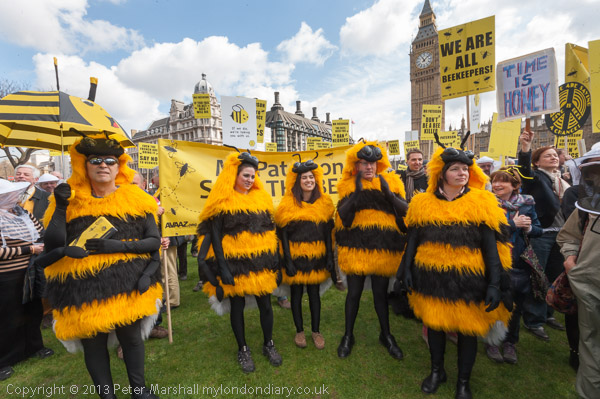
Yesterday I walked down my garden and found our three apple trees in full blossom, a fine sight, though one I didn’t feel a need to photograph. I rather like the way it appears just for a few days each year then disappears. I stood there for a minute or so, breathing in the scene, then realised there was something wrong.
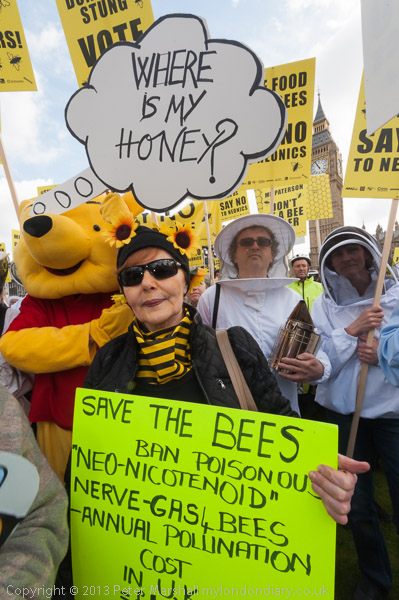
One of the things that I’ve enjoyed with our various lockdowns has been the silence with fewer flights from Heathrow. We’re off the flightpaths but only a couple of miles distant, and in usual times there is a virtually constant drone – along with the noise of the various motorways a mile or two distant. Road traffic is more or less back to normal but we still here the birds singing and other natural noises more clearly.
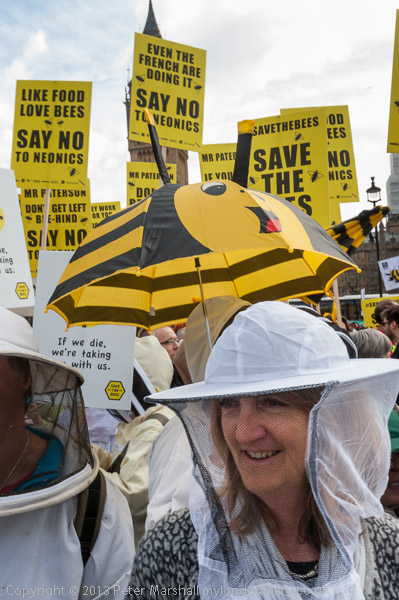
Standing by the trees I realised what was missing – there were no bees. For a couple of minutes, no bees. Then along came a solitary bumble-bee. Quite a large one, but that bee is going to have a problem pollinating all that blossom.
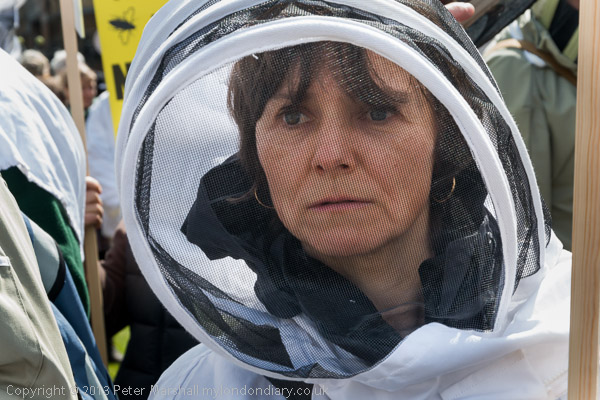
Most crops rely on insects to pollinate the flowers and without them there are no crops. Bees are not the only pollinating insects but I think they are the main ones, and the decline in bee colonies has a drastic effect on food production – including my own apple trees.
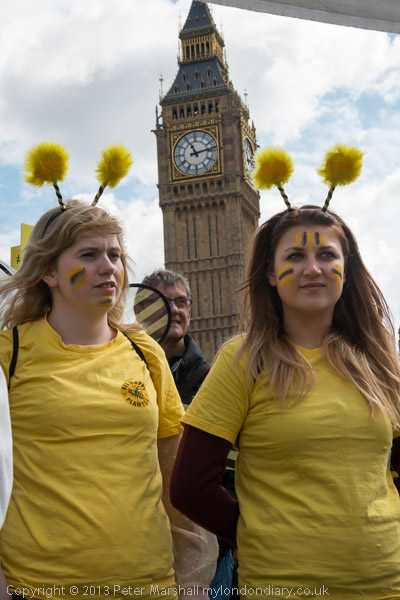
The beekeepers and environmentalists came to protest outside parliament to urge the UK to vote for a EU ban on bee-killing neo-nicotinoid pesticides which both kill bees directly and reduce their resistance to other factors. The EU later backed a ban on these pesticides with Michael Gove, then environment secretary stating that the risks of using them “to the bees and other pollinators which play such a key part in our £100bn food industry, is greater than previously understood.”
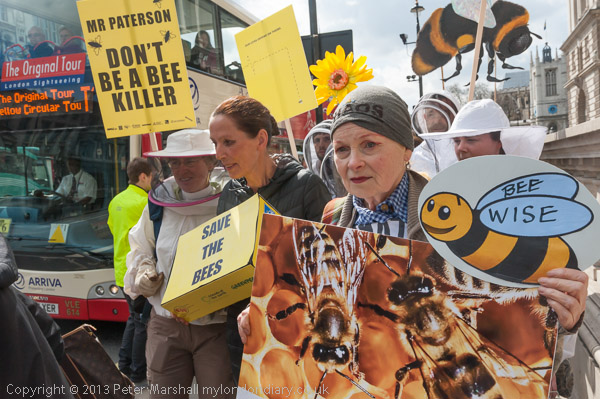
However although the are generally now banned for outdoor use, the government early in 2021 authorised the use of one of these pesticides on the sugar beet crop to combat the threat of the virus yellows disease, though in the event the threat was found to be less than anticipated and the pesticide was not used.
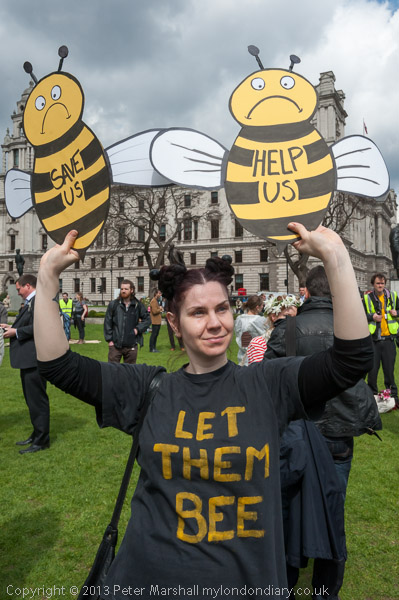
Bee population in the UK seems to be continuing to decrease, though this year’s dearth in my back garden may be more a matter of the particular weather conditions and local habitat loss. Surveys of pollinating insects have shown a fairly consistent decline since the 1980s, with around a third having been lost since then, though the recent decrease in pesticide use may have reduced the rate of decline.